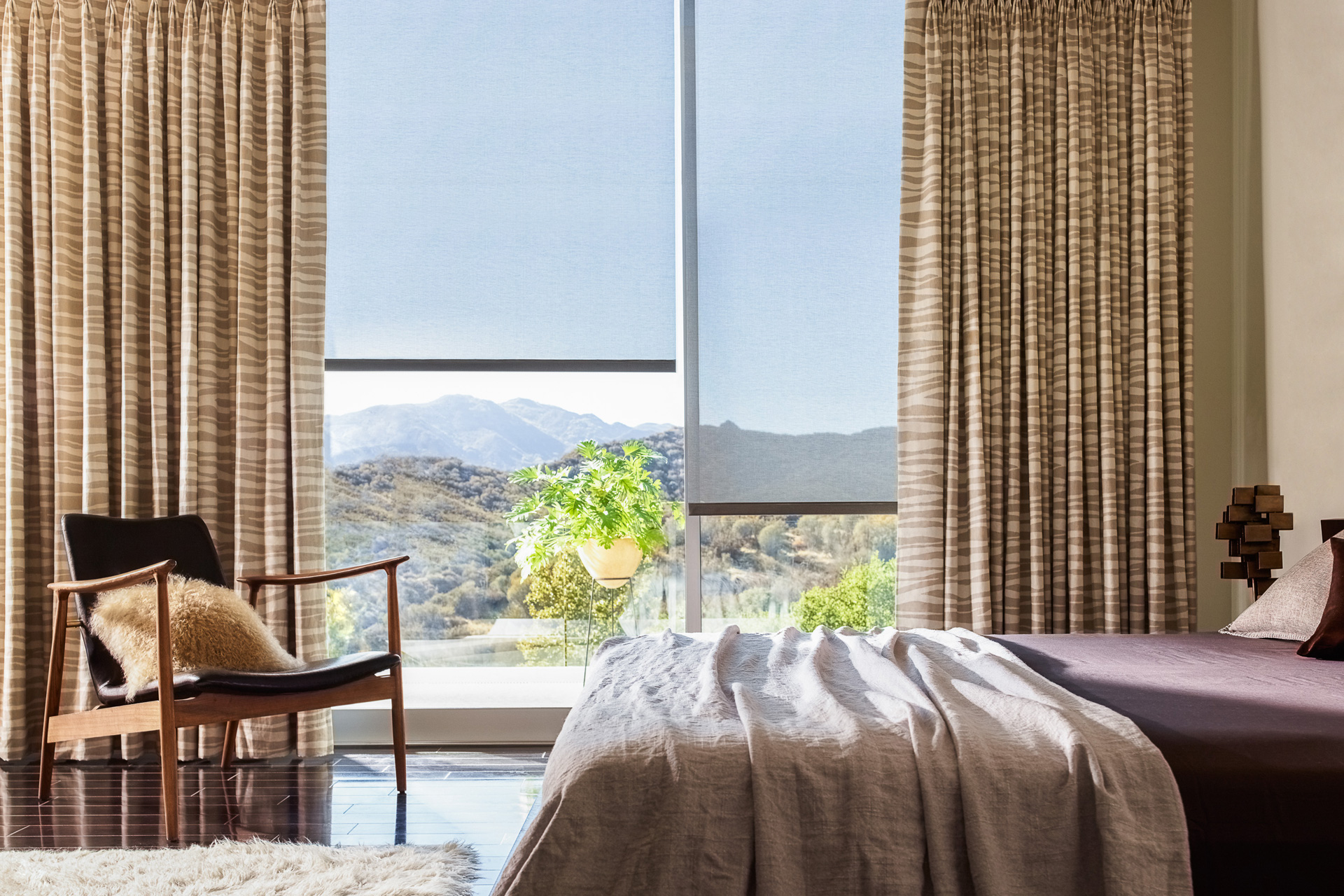
12 Oct 4 Stylish Ways to Soundproof a Bedroom
A bedroom is a place of rest. You want calm colors, cozy furniture, and quiet. If your bedroom lets in noise from outside, you won’t get much rest. Learn how to design a soundproof bedroom or upgrade the one you are using with these tips from real interior designers.
Start with the walls
Walls are the most important part of soundproofing your bedroom. Upholstering walls will mean less sound bouncing off them in the bedroom. Our design team loves using upholstery instead of acoustic wall panels. You want your bedroom to still feel like a bedroom and not a recording studio. If you want your wall upholstery to feel glamorous, you could consider using velvet fabric. If you don’t like velvet, you can still use wallpaper with a layer of cork under it to absorb the noise. Wallpaper offers a choice of all the prints you love.
Handle the headboard
Believe it or not, redesigning your headboard can give you a much quieter bedroom. Build a tall three-sided headboard that goes around an alcove. It turns into a cocoon that protects you from the sound. Any chairs in your bedroom should to be upholstered, too.
Cushion with soft textiles
The more soft textiles you can have in the room, the more sound it will absorb. Think heavy drapes, bedside rugs, and wall-to-wall carpets. Use your favorite colors and patterns. Introduce design elements that reflect your sense of style. Meanwhile, more artwork on the walls also helps noise bounce off surfaces less for a cozier ambiance and better sound absorption.
Get new windows
Replacing windows is expensive but worth it, as they may be causing a lot of noise to enter of leave your bedroom. This may be especially important for our clients in downtown areas and big cities where silence is golden. Get double or triple-pane windows. More panes mean less sound penetrating.
Rethink the insulation and layout
There are some aspects of sound insulation that are better-taken care of during the home construction process. These include ducts for air conditioning, heating ducts, gaps beneath doors, and external windows. The layout of a room determines how noise travels through it. Identify the noisiest wall and place a closet against it. Additional doors act as extra sound barriers. MLV or (Mass Loaded Vinyl) is an excellent installation before you install floors. It is heavy and flexible. It is the first step of soundproofing. You could also incorporate denim insulation to make your walls more soundproof (this option is non-carcinogenic and environmentally friendly).
